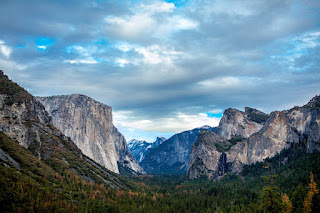 EVOLUTION -
EVOLUTION -PART EIGHT
(Copied from Mark Cahill's Book A Heartbeat Away)
Darwin knew exactly what was required to Prove his theory true, and he was honest enough to say so. He also recognized that there were numerous valid objections against the theory, one of which was the lack of transitional forms ? There should be millions and millions of fossils in intermediate stages if evolution were true. The problem, Darwin proposed was that we just haven't seen enough of the fossil record yet. Well that has now been remedied with modern geology.
Almost 150 years after Darwin, what do we find in the fossil record? We find fossils of fully formed woolly mammoths, whole fish, whole reptiles, and so on. Everything in the fossil record appears fully formed and true to its own kind. There are no creatures with partially formed skeletons, or partial fins or beaks. Among the billions of fossils found, we don't see one single example of the transitional forms Darwin said must exist if his theory of evolution were true.
What does that tell us? That there is something very wrong with his theory. The fossil record should show gradual transition from lesser forms to the more complex forms for this record to be true.
Take a look at what the experts say:
George Gaylord Simpson admitted: "The regular absence of transitional forms is not confined to mammals but is an almost universal phenomenon, as has long been noted by paleontologists."
A.J. Marshall stated: "The origin of birds is largely a matter of deduction. There is no fossil of the stages through which the remarkable change from reptile to bird was achieved."
H.W. Smith of NYU speaking of the lack of fossils that should exist for the vertebrates wrote: "The gap remains unbridged and the best place to start the evolution of the vertebrates is in the imagination."
After spending 40 years searching for evidence of evolution, and failing to find any, Nils Herbert-Nilsson wrote: " The fossil material is now so complete that it has been possible to construct new classes, and the lack of transitional series cannot be explained as being due to the lack or scarcity of material. The deficiencies are real; they will never be filled."
It is conclusive. There is no evidence in the fossil record for macroevolution - that is for one species changing to another. Evolutionists try to defend the lack of transitional forms by claiming that species evolved so rapidly that they left no fossil record. But they also tell us that no one can see evolution taking place today, because it occurs too slowly.
 So, in reality - whether it is supposedly too fast or too slow to notice - there is no fossil evidence of
So, in reality - whether it is supposedly too fast or too slow to notice - there is no fossil evidence ofmacroevolution.
So no-one can actually see any evidence of evolution anywhere!
Can we call it the "fact" of evolution with no evidence to back it up? That doesn't make for a good theory!
In the journal Evolution, David Kitts reminded his fellow evolutionists: "Despite the bright promise that paleontology provides a means of 'seeing evolution' it has presented some nasty difficulties for evolutionists, the most notorious of which is the presence of 'gaps' in the fossil record. Evolution requires intermediate forms between species and paleontology does not provide them."
What the fossil record shows instead is not gradual change, but sudden appearance and stability: most fossil species appear all at once and fully formed.
According to paleontologist Robert Carrol: "The most striking features of large-scale evolution are the extremely rapid divergence of lineages near the time of their origin, followed by long periods in which basic body plans and ways of life are retained. What is missing are the many intermediate forms hypothesized by Darwin...."
In the period that paleontologists call "the Cambrian explosion" virtually every major animal group appears suddenly from nowhere, with no transitional forms preceding them.
 So,instead of animals
So,instead of animalsdiverging from a common parent, what the Fossil record shows is that all the major groups arose abruptly at one time.
Think about that. Does this
evidence support the theory
that life evolved gradually by accident - or does it point to a Creator?"
Evolutionists usually argue that the necessary transitional fossils are there, but they haven't been found yet, or that they have been destroyed. When you believe something without having any proof, does that fall within the realm of science - or is it faith?
Why would someone choose to believe by faith in evolution, which has no evidential proof, and which, in fact, the evidence disproves, - but not believe by faith in a Creator, for Whom we do have evidence?
Next post 17th June
No comments:
Post a Comment